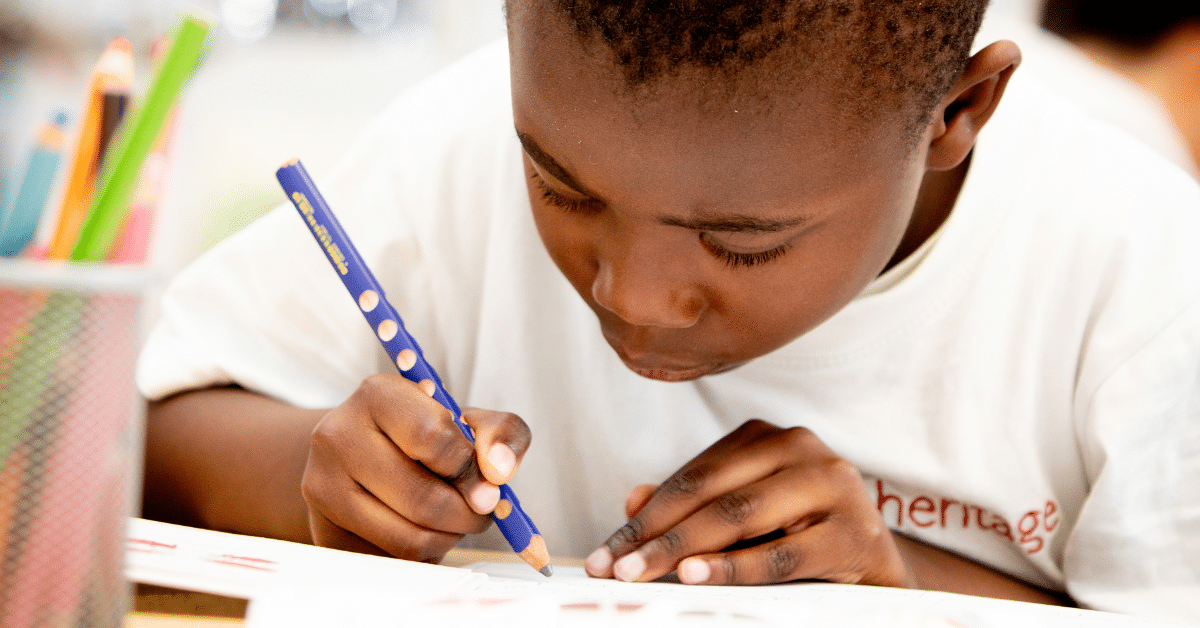First Assembly Message of the Year: The Greatest Invention Ever
What was the greatest invention ever? In the first Infant and Junior Assembly of the new academic year, Mr Fletcher gave a surprising answer…
First, he gave us a whistlestop tour through the prehistoric period, taking the children back ‘a long, long, long time ago’ to the Jurassic Period, when the chalk hills south of Cambridge were under water and dinosaurs walked the earth; through the Stone Age and the beginning of farming; then into the Bronze Age when humans started to make things out of… bronze. Although impressive, none of this was the greatest invention ever.
The greatest invention ever was in fact so remarkable, he said, that everything that has happened since is what we call ‘history’, whereas everything that happened before is called ‘prehistoric’ because we know so little about it. So what did Mr Fletcher say was the greatest invention ever? It is writing. It was such an amazing invention, he said, that it would be best to describe everything that has happened since the Stone Age, including the period we now live in, as the Writing Age. ‘What makes the invention of writing so special is that, for the first time, people were able to make their words permanent.’
Mr Fletcher then outlined the development of writing, starting just over 5,000 years ago with the cuneiform tablets of the Sumerians and Egyptian hieroglyphics. Then about 3,500 years ago, he described the extraordinary discovery made by the Phoenicians. ‘They very cleverly realised that words people spoke were made up of a relatively small number of sounds, combined in loads of different ways. They worked out that if you could identify each of those sounds, and give each of them a special mark, then you could write any word that anybody could ever speak’. These marks, he said, are what we call ‘letters’ and they make up what we call an ‘alphabet’.
According to Mr Fletcher writing is the greatest invention ever for two reasons. First, it makes it possible for large numbers of people to work together and form complex societies. Second, and most importantly, he said that writing helped everybody to think better. ‘When you take time to write down what you want to say, you have to think carefully about what words you will choose. And then, as someone else comes along to think about that same thing, and they read those words, they start with a great advantage. By reading what someone else said about something, it helps them in their own thinking.’ The best words got passed down from generation to generation, Mr Fletcher said, and, in this way, knowledge grew, and grew and grew.
Here was Mr Fletcher’s conclusion for the pupils: ‘Writing is what has made civilisation possible. So, here at the start of a new year, we wanted to especially encourage all of you to take pride in your writing. It really is the greatest invention ever!’



